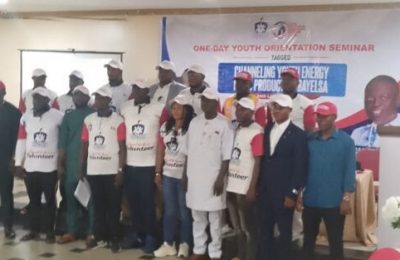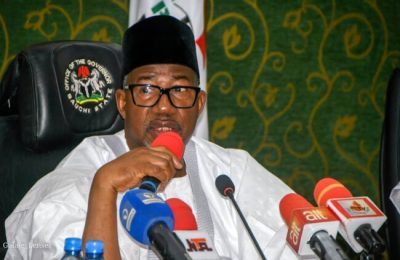
Dr Eyiwumi Olayinka is a writer and a senior lecturer at the Department of European Studies, University of Ibadan (UI). She is also the wife of Professor Abel Olayinka, the immediate past Vice-Chancellor (VC) of UI. In this interview by Kingsley Alumona, she speaks about her scholarship, university administration, gender issues, among others.
YOU teach at the Department of European Studies and have a PhD in French. Why did you decide to study French?

I studied French because I fell in love with it right from my secondary school days. I always had a distinction in it. Therefore, it was intentional. Although, I had wanted to study Law. But I changed my mind because I believed then, as a young innocent girl, practising law meant that I was going to be compelled to tell lies to defend erring clients.
How long have you been a lecturer and what is the most interesting part of your lecturing job?
I have been a lecturer for 14 years, two of which were spent as a Research/Teaching Assistant at the Department of European Studies, University of Ibadan. Before then, I had worked at the International Institute of Tropical Agriculture cum International Livestock Research Institute, Ibadan, for 19 years and five months and rose from the position of a bilingual administrative assistant to that of a station administrative manager.
I find my ability to positively impact knowledge, transform minds, and mentor the younger generation most interesting and extremely rewarding. I’m always happy to see my students excel both in their academics and personal life. For that reason, I’m passionate about them and would do anything positively possible to see them emerge and be the best they could be in life.
Apart from the fact that academics are poorly rewarded, a thing that makes one feel sad, I’m very satisfied with my job as a lecturer and researcher. Nothing could be more satisfying and stimulating.
What is your research area in French scholarship and in what ways does your research impact the town and gown of society?
I focus on three areas: Gender studies, postcolonial African studies, and psychoanalytic and literary studies. My research outcomes in these areas have been quite interesting. In the area of gender studies, findings have been quite complex and have shown that no gender is better than the other. What plays out in individual lives is a result of cultural and traditional beliefs which scientifically cannot be foregrounded as factors that make males better than females. Some of my findings report that women are more intelligent, more emotionally stable and more able to multitask than men. If given the opportunity and placed in the right context, they would do better than men in all spheres of life.
Other findings are that we have discovered that males are vulnerable to oppression by females even though at a lower degree in terms of data. Unfortunately, for cultural reasons, men hardly open up to this fact. This makes it appear as if men are often culprits while women are innocent and the only victims of oppression. There are many more discoveries too.
Most Nigerians would wonder why anyone would study European languages when there are many Nigerian and African languages to study and explore. How would you react to this?
Life is a matter of interest and what you are cut out for. I would say we should each follow our instincts — do what you love most, even if it is selling pepper. The important thing is to be passionate about what you do and make a lasting impact on humanity.
The ratio of male to female lecturers in UI is relatively high, even in departments where female lecturers are supposed to dominate. As a feminist and gender advocate, how does this make you feel?
That is a reflection of what gender politics is all over the world. This isn’t only at UI. Findings show that women are still underrated, undervalued, and not given the same chances as men to prove themselves. There are many beliefs about gender issues that we must unlearn. All of those things that Aristotle, Jean-Jacques Rousseau, Darwin, etc., said about women were quite unscientific. It’s an indication of the limitations to the knowledge they had about the two genders in their time.
Do you know that there are more than two genders? Scientifically, new technologies in DNA sequencing and cell biology prove there are more than six sexes. So, the belief in the existence of only two sexes has become a simplistic scientific explanation of human biological sex. Gender performance is fluid and shouldn’t be cast in the garb of sex. For that reason, roles and opportunities shouldn’t be cast in stone because of biological composition.
Historically, women have led men to wars — Deborah in the Bible led Israel where Barak, the Commander in Chief of Israel’s Armed Forces, refused to go unless she went with him. Other amazons in the antiquities too: Aba, the warrior daughter of Xenophanes (fl. 55 BC); Candace Amanirenas of Ethiopia (30 BC); Claudia Quintas, a Roman matron (fl. 143 BC); and Laena of Athens (fl. 505 BC) all did exploits.
Efunsetan Aniwura was a quintessential stateswoman and builder who excelled where some men failed. She substantially sponsored Ibadan wars against their neighbours. Queen Amina too was a strong warrior. Across Africa, you had and still have women doing exploits. Biological mapping of the sexes informs the gender binary lens being used to segregate genders. Happily, this is thinning out — however, it’s not yet uhuru. There’s still a long way to go before the world achieves gender equality.
President Bola Tinubu recently signed the students’ loan bill into law. How do you think this could help students and universities develop scholarship and infrastructures?
That’s laudable. However, I think more planning, the right structure, and adequate data for those qualified to receive such loans must be available for the scheme to succeed. Importantly, the government should think of job creation. Of what use is it to grant students loans when after graduating from school they won’t find the right employment from where they will earn decent salaries to repay the loans?
Your husband, Professor Abel Olayinka, was the immediate past Vice-Chancellor of UI. During his tenure, there were lots of demonstrations by students and staff. What was your worst fear/concern for him as VC then? And how did you help him through those difficult times?
I had no fears because those accusations were false. He came in at a time when there was a paucity of funds coupled with the introduction of the Treasury Single Account (TSA). You will recall that President Buhari took over on 29th May 2015. Soon after, the exchange rate of the naira to the US dollar fell drastically. That affected the cost of executing most of the projects already awarded in 2014/2015.
To move forward, the contractors had to request variations of the original contract sums and/or scale down the original scopes of those projects. The University of Ibadan, like most other federal universities, started experiencing a massive drop in the personnel costs allocated to it from November 2015, just about the time my husband resumed as the Vice-Chancellor. Staff agitation for full payment of their salaries became the order of the day. This situation persisted till February 2020 when all staff of federal universities were migrated to the Integrated Payroll and Personnel Information System (IPPIS). Despite that, he achieved a lot. The facts are there to see.
I upheld him in prayers and made sure the home front remained unshaken. It was difficult though, but God stood by us through thick and thin.
Have you thought of becoming the VC of UI? If you were the current UI VC what three challenges would you prioritise their sustainable solutions?
Becoming the VC of UI or any other Nigerian university is for God to decide. The challenges university administrators face are herculean. They are an albatross. No matter what solutions you want to proffer, it all boils down to funds. There’s no magic anyone would perform without sufficient funds. Nothing is free, even in Freetown. I sympathise with university administrators and wish them the best even in the most unfavourable conditions under which they function.
You are a published literary writer. What does writing mean to you? Tell us about the creative works you have published.
Writing means the psyche and society to me. One writes about one’s observations and experiences. I’m still very young in the creative field. I have published a collection of feminist poems, ‘Behind the Curtains’ in English and translated into French as ‘Sentiments cachés’.
My focus is on gender imbalances and the vices women experience in patriarchal societies. I also wrote about my parents. They were very precious to me and I always wish they were still alive.
You participated in the Nigerian Academy of Letters (NAL) 2024 creative writing workshop in Abuja. How did the workshop shape your writing skills or impact your creative mind?
It was impactful. I gained knowledge in the area of writing bestselling and award-winning creative works. I wish I had that opportunity long before now. I’m thankful to NAL and very happy to have been a nominee for the workshop.
What creative work are you currently working on? Do you have dreams or aspirations of writing that great Nigerian novel that will win prestigious national and international awards?
I’m working on a play and a novel. I hope my creative works will attract public attention and make tremendous impacts that drive change. As for award-winning, every creative writer wishes to be that celebrated laureate. So, why not, if I get that lucky and helped by God?
How do you relax and manage stress? And, if you were to travel to a foreign country on an all-expense-paid trip for a few weeks’ holiday, which country would you prefer and why?
I listen to music, dance, and read. The Bahamas is my choice. I dream one day of visiting that Archipelagic state, and seeing as many of its islands, cays and islets as possible.
ALSO READ: Police arrest man for attempting to sell daughter for N1.5m







